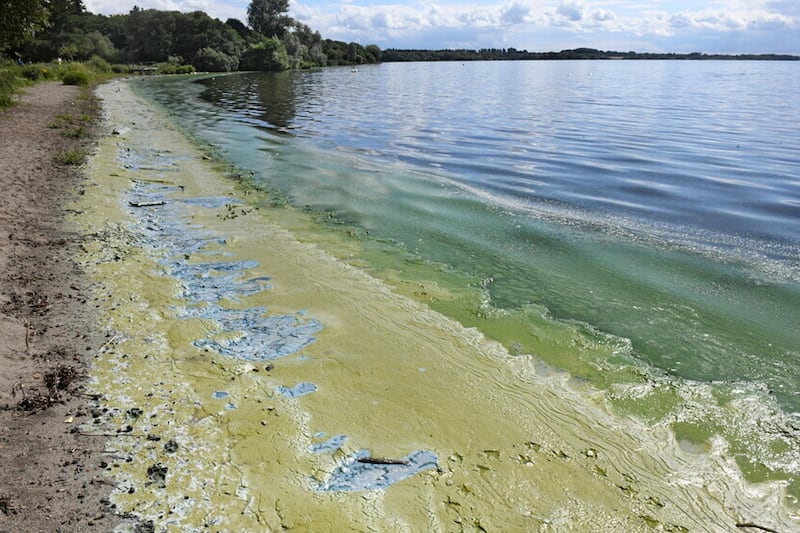A company that has submitted a proposal for the clean up of Lough Neagh has estimated it could cost more than £9 million in the first year.
Potentially harmful blue-green algae appeared on the lough last year at a level not seen since the 1970s.
Environment Minister Andrew Muir has asked officials to reallocate resources within his department to ensure prioritisation of efforts to tackle environmental problems in Lough Neagh.
He has received £1.6m in capital funding and no resource funding for the issues besetting the lough.
Now, Hennessy Ward has said that through the use of non-toxic “revolutionary technologies” the algae levels can be controlled.
Director David Ward said that the best solution would require changes to farming practices which contribute to elevated nutrient levels in the water.
“However, even if this was done overnight, it has been estimated that it will take over two decades for the nutrient content to drop to acceptable levels, all the while the algae blooms persist and Lough Neagh continues to be an environmental disaster,” he added.
Mr Ward added that there could be additional running costs if the underlying causes of the toxic blooms are not addressed.
The Department for Agriculture, Environment and Rural Affairs said the proposal has been added to “the register of proposed solutions for further consideration”.
Campaigning group Save Lough Neagh said it has received “dozens” of similar offers but does not endorse solutions by private companies.
They added that solutions driven by public investment and policy change were needed to tackle the crisis.
“Outsourcing the problem to another private company while not addressing any of the underlying causes, would be a poor use of taxpayer money,” said a spokesperson.
“Our primary concern is the intensified agriculture practices leading to excess nutrients in the lough along with the lack of investment in water treatment infrastructure.
“Public funds would be better spent addressing these areas than spent on putting a plaster over the problem.”







